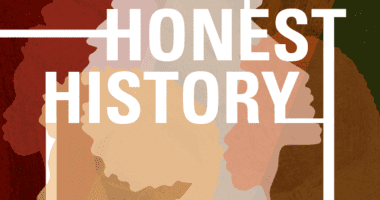In Their Words: A ‘Lot of Work,’ But Worth the Effort
During our research for “Falling Out of the Lead,” the third report in our Shattering Expectations series, we interviewed high-achieving, low-income students to better understand how their high schools prepared them for college. In this post, the last in our four-part series, we share a story of high school preparation done well. Meet Rosa, a graduate of Ohio’s Columbus Alternative High School, which is profiled in our report for serving high-achieving, low-income students well.
Rosa chose Columbus Alternative High School for its strong academic reputation. It’s a school of choice in Columbus, Ohio, where students are admitted by lottery, and it serves a large, low-income population. “My (neighborhood) school wasn’t as academically rigorous,” Rosa recalled. “It didn’t have the same kinds of opportunities (as CAHS),” like Advanced Placement courses and off-campus internships.
As part of the school’s college-preparatory focus, CAHS only offers honors courses, eschewing the tracked coursework found in most high schools. Students take a rigorous humanities course in ninth grade, and by junior year, they take either AP or International Baccalaureate English, ensuring that every student encounters at least one authentic college-level experience before graduation. In total, the school offers 17 AP courses and 15 IB courses, providing a number of choices to students without sacrificing instructional rigor.
The quality of the courses, though, has less to do with course titles in the master schedule and much more to do with what happens in the classroom. “I had a lot of classes that were based on discussions, lots of writing, and test-taking,” Rosa says. “Something I found really special at CAHS were the discussions and the Socratic seminars.” These experiences “really prepared me for college,” she added.
Although CAHS is committed to accelerating the learning of students who come in behind, it also provides tailored support to those who are high-achieving at the outset. Once a week, upperclassmen work in internships off campus, leaving staff to work with small groups of freshmen. During this time, students receive intensive academic assistance, enrichment, and guidance. As such, freshmen often develop relationships with teachers that last well beyond ninth grade. “I had so many teachers go above the call of duty to help me,” Rosa says, remembering a ninth-grade chemistry teacher who regularly tutored her through a separate AP science course a few years later.
The adult support extends beyond coursework; CAHS faculty encourage students to take risks when pursuing their postsecondary goals. “A lot of high-achieving students shy away from applying to [expensive] places because of the cost,” Rosa says. Yet Rosa has two classmates at Harvard this year. “They got incredible amounts of scholarships because they took the chance,” Rosa said, crediting this, in large part, to encouragement from educators at her school.
For Rosa, now a freshman at Butler University in Indiana, winning a spot in the CAHS lottery six years ago was invaluable. “CAHS gives you a lot of work … but (college) is the same: paper-writing, discussion-oriented classes,” she says. “It’s actually pretty comparable.”











